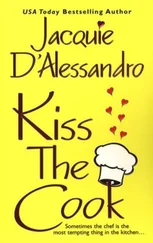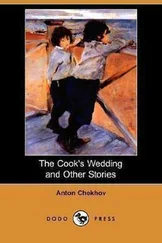There were so many cooking programmes in the early Eighties that journalists started to get quite cross about them. ‘Not another one!’ they would cry. ‘Surely enough’s enough?’
But Floyd was different. Until then, cookery on television was really aimed at women. When Floyd came on to our screens he gave men a clear and open invitation to get into the kitchen and have a go for themselves. Forget about exact ingredients, pour yourself a glass of wine and relax. Peel a couple of cloves of garlic and make the whole cooking experience far more enjoyable than going out to a restaurant.
Floyd made it OK for blokes in pubs to have conversations about chillies and coriander, and what’s more, he cut down the fences that surrounded this relatively safe field of TV cookery shows, letting in what was to build up into a stampede of new, strange, and sometimes dangerous animals. Now cookery shows have spilt over from BBC2 onto Channel 4 and ITV where a healthy dollop of testosterone and foul language make them ‘showbiz’. Add to that a smidgen of threatened violence, and it becomes almost gladiatorial. The boundaries are being shifted every few weeks with the likes of Hugh Fearnley-Whittingstall and Jamie Oliver highlighting the unsavoury practices of factory farming and alerting the nation to an epidemic of fat schoolchildren. These TV chefs have become more effective and powerful than a roomful of MPs, and I’m talking about a pretty big room here.
I read somewhere that the excellent Anthony Worrall Thompson said that we all got our TV careers because of Floyd. I know that it was Keith Floyd who inspired a very young Jamie Oliver to be a chef. Floyd was right. Cooks have become as famous as racing drivers and rock musicians, probably even more so.
But none of this had happened yet. The programme with Floyd and his very expensive rabbit dish was shown on RPM sandwiched between a Stranglers’ concert and a Sixties guide to the West Country presented by that wonderful writer and broadcaster Ray Gosling; a world of Teddy Boys, street parties, frothy coffee, mini skirts, skiffle and scooters, interspersed with a host of curious and quirky items from the BBC’s treasure trove of old news films. It would be an understatement to say Floyd didn’t fit in terribly well, and many people told me so, including my boss.
‘What on earth has that idiot cooking a rabbit got to do with the programme?’ he asked.
I thought about it for some time, but I couldn’t really come up with an answer. It was nearly a year before I was to meet up with Floyd again.
In the meantime, I went off around Britain with that eccentric Liverpudlian Beryl Bainbridge, following in the footsteps of J. B. Priestley’s English Journey . I learnt a lot from her; not least how to drink large ‘Rusty Nails’, a mixture of whisky and Drambuie.
There was a memorable moment when we arrived in her home town and she led us down a street where the houses were all boarded up, ready for demolition. She looked up at one of them and said, ‘David, that’s where I was brought up.’
We had to film this poignant moment, I thought. So we pulled the corrugated iron off one of the windows and climbed into this scene of devastation. There were daubings on the wall and unmentionable things on the floor; some of the boards had been ripped up to make a fire. I could see she was moved to tears as we walked through the house, through the front room where, she said, her mum and dad used to argue, while she would be upstairs listening. We climbed the stairs, looked into her bedroom, and her eyes were welling up. She lit several cigarettes and stared wistfully out at the backyard, all tumbled down and covered in stinging nettles and overgrown weeds. Eventually we climbed out of the window and she stood there looking back at the house. I found the whole thing terribly moving, and I told her so.
Then she turned to me and said, ‘David, it wasn’t that house. It was the one next door.’
The owl and the pussy cat went to sea—eventually
From time to time at the BBC you were encouraged to apply for another job. I think it was a measure adopted by large organizations to avoid complacency. Jimmy Dewar, my irascible and generous boss in Bristol, thought it the most sensible thing to do.
‘Look at it this way,’ he said, pouring me a large gin and tonic. ‘You’ll be seen as someone who wants to get on in life and to develop other skills. And, anyway, there are quite a few applicants for the Plymouth job so the chances are that you won’t get it.’
‘What if I do get it and say I’ve had a change of heart?’ He gave me one of those looks that Captain Mainwaring usually reserves for Private Pike.
It was a bit of a shock leaving Bristol to move to Plymouth and take up my new job as features editor there. I remember Alan Clark, the diarist and MP, saying the best view of Plymouth was in the rear-view mirror of his Porsche as he went hell for leather back home to Kent. The centre of the city is improving now and promises to be a mini version of Barcelona in five years’ time—both cities have the sea in common—but back in the early Eighties it was depressing. The city centre, apart from a couple of large department stores, was a pedestrianized zone of cheap low-rise buildings, the result during the last war of the Luftwaffe bombing every structure that had some architectural merit. While it had been uplifting to spend a lunch hour in Bristol, walking down the lovely Park Street, here all I saw were swathes of people dawdling along the pavements, dressed in track-suits and munching on Cornish pasties from paper bags.
The best bit of Plymouth by far was the Barbican, and the best bit of the Barbican was the fish market, right next to the old harbour where the Mayflower sailed to the New World. Plymouth has a new, much smarter fish market these days, where members of the public are not particularly welcome, which is an enormous pity, but in the early Eighties Brussels and all its Health and Safety brigades hadn’t put Plymouth on its list of things to do. Most of the fish merchants had cigarettes stuck in the corners of their mouths as they slid their filleting knives swiftly over the framework of bones.
Hogarth and his sketchbook wouldn’t have looked too out of place in the old fish market. I’d very often see a man inspecting the fish, dressed like Sir Francis Drake in doublet and hose, with a well-trimmed beard and a natty little hat. He looked quite at home among the glistening cobblestones. Apparently he would take groups of schoolchildren around the narrow streets that led down to the harbour and he’d bring to life those days of the Armada, pox, and rum. Occasionally I’d see him in Sainsbury’s with his flashy rings and buckles and a large cutlass swinging from his hip. It was an odd sight to see such a figure reading the small print on a pot of yoghurt.
I loved that fish market, awash with water and ice and disdainful looking seagulls strutting around the fish boxes looking for a tasty morsel. In the winter I ’d buy the finest lemon soles for supper. They were firm and thick and landed just a few hours before and they smelt sweetly of the sea itself. In the summer I’d buy turbot and red mullet and it was on one of those fish-buying trips that the proverbial light bulb went on and completely changed my life for ever.
The fish merchants were true artists of the knife, leaving not a scintilla of wasted flesh behind as they filleted their fish; but they tended to be grumpy until they got to know you. One day when I was shopping there, Fred Brimmacombe, a fish merchant who wore a sailor’s hat with so many badges on it you could hardly see the cloth, was having a bit of a rant.
‘All people in this country want is cod, plaice and ’addock.’ He started to point with his razor-sharp filleting knife. ‘All these red mullet, all these cuttlefish, these ’ere gurnards, is all shipped over to Spain.’ Fred was getting a bit cross now, walking across the slippery fish boxes, balancing on their edges like an angry seal. ‘The mentality over ’ere is, if we don’t bloody well know what these fish are, we don’t bloody eat ’em. It’s a bloody shame. It breaks my ’eart it does, to see all this good fish sent over there to arrive three or four days later in some bloody Spanish port, way past its prime. It’s a national disgrace it is. It really bloody is.’
Читать дальше












